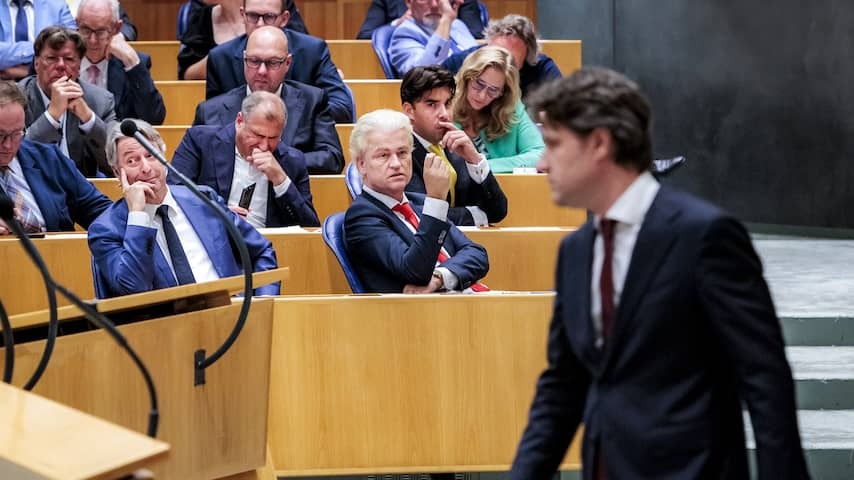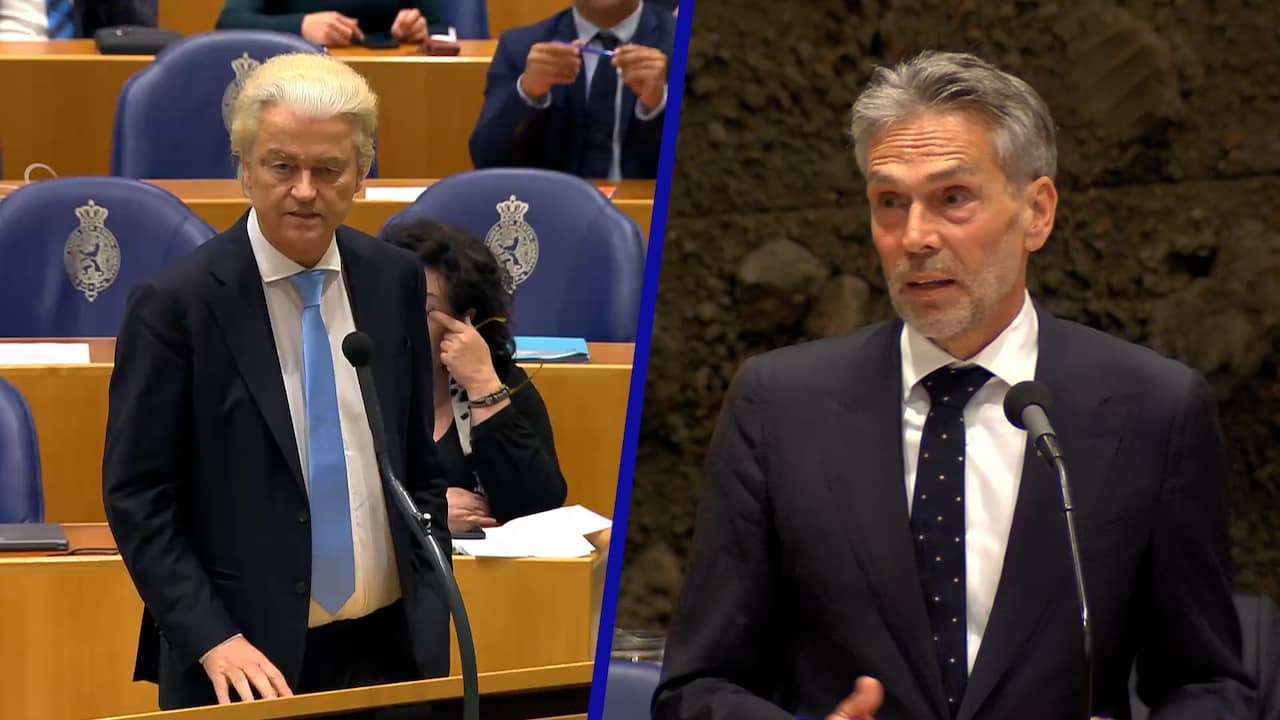
The political year ended as it began: with chaos surrounding asylum measures. But with a fallen cabinet and the PVV in the opposition, the tone of party leader Geert Wilders remains unaffected. Is this a harbinger of the campaign?
The asylum emergency measures law had to and would pass through the House of Representatives. And so it happened, but don’t ask how. It was truly turbulent on all sides.
For example, there was blunder by GroenLinks-PvdA and the Party for the Animals during the vote, which suddenly made illegality and helping illegal immigrants punishable. And the CDA suddenly changed its position as a result. NSC and SGP began to doubt. Thus, “the strictest asylum policy ever” suddenly wavered within sight of the harbor.
With a less than elegant trick, outgoing minister David van Weel pushed the asylum emergency measures law through the House. Advice will be sought later on making illegality punishable. That will also be introduced later.
Constitutional law expert Wim Voermans was dizzy. “It can’t get any crazier: blindly agreed and then advice from the Council of State is needed,” he wrote on X. “Not careful legislation, but a purely political game.”
Schoof: ‘Does not deserve the beauty prize’
Within the outgoing cabinet, too, there was astonishment at the course of events. “I look at it with pain in my eyes,” said outgoing Minister of the Interior Judith Uitermark (NSC).
“The process of the past few days does not deserve the beauty prize,” concluded outgoing Prime Minister Dick Schoof. He was not present at the votes in the House on Thursday but was on the phone from the Catshuis to ensure that the asylum law would reach the finish line.
Schoof and Wilders no longer have contact
Wilders, meanwhile, let it all happen. While the asylum emergency measures law was submitted by his PVV minister Marjolijn Faber, and the amendment to make illegality punishable came from his party.
The question is whether it even matters to Wilders whether the asylum law is adopted or not. When it was still unclear on Thursday evening and the law threatened to fail, he held other parties responsible for it. “Obstruct, frustrate, delay, NSC, CDA and even SGP with questions, demands, urgent advice from the Council of State,” he wrote on X. “This is exactly why the cabinet fell. Amateurs.”
Once the asylum law was passed, he claimed victory. “Great week for the PVV!”
According to sources, Wilders himself took no action behind the scenes to secure a majority for the asylum law. There would not even be any contact between Wilders and Schoof since the fall of the cabinet.
 2:04
2:04
Wilders dismisses Prime Minister Schoof’s reaction as ‘weak sauce’
‘Polarization in society is reflected in parliament’
Chaos around asylum, quarrels between the (former) coalition partners, and a non-partisan prime minister who has no authority. It has been no different in the past political year. For example, in the video above, see how Wilders addressed Schoof a year ago during the debate on the government statement.
Schoof called regaining the collapsed trust in politics “perhaps the most important task for the coming period” for the cabinet.
He had forgotten that task on Friday, a year later. It has also not succeeded, according to a recent survey by Ipsos I&O. Only 11 percent of the voters surveyed are confident that a new cabinet can solve the problems in the country.
“Extremely sad,” Schoof acknowledges when asked. “Trust has a lot to do with the way we have conducted discussions in parliament. Polarization in society is also reflected in discussions in parliament.”
A large part of the House went along with Wilders’ conflict model this week. CDA leader Henri Bontenbal saw it happening before his eyes, to his frustration. “Politics has been held hostage by the politics of Geert Wilders for a year and a half,” he said on Tuesday. “Certainly, the coalition parties seem to dance to his tune.”
Bontenbal already sees the storm coming and fears that the campaign will be dominated by Wilders, who thrives in chaos, and is now trying to break through that.
But nothing indicates that things will suddenly run smoothly in the campaign after the summer. Just look at the continuation of the asylum law. It is still completely unclear how it should proceed now. “It is difficult to look into the future,” Schoof said about that.
Yet that future is not so far away. The purchasing power negotiations will already begin in August. Budget Day is soon after that. Then it will become clear which model is central to the campaign.